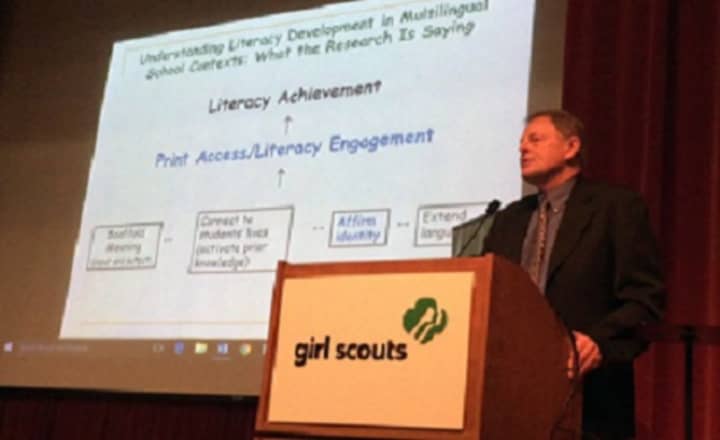Dr. Jim Cummings, a professor in the department of Curriculum, Teaching and Learning at the University of Toronto, spoke recently at the Lower Hudson Regional Information Center in Harrison.
The daylong conference at which Cummings spoke was designed to help local educators learn new ways to help "English language learners" succeed in school.
Literacy engagement is key, Cummings said, to helping non-English-speaking children succeed, Cummings said, adding that policymakers in the world of education have largely ignored that advice.
“Sticking one’s head in the ground and ignoring the research is why we haven’t made more progress,” he said.
Other factors that have contributed to underachievement among the ELL population, Cumming said, is the “attitudes and beliefs” of some teachers and administrators toward immigrant children.
Having low expectations, and failing to understand the needs of difference cultures, leads to curriculums that do not take into account “the experiences and contributions of a predominantly minority group,” Cummings said.
“There are huge gaps between what the research is saying and the way it is being interpreted,” he said.
Also speaking at the conference, which was co-sponsored by Pearson Education, was Dr. Ernest Morrell, director of the Institute for Urban and Minority Education at Teachers College, Columbia University.
Morrell spoke -- from a social, cultural and digital perspective -- about ways to get students excited about literacy and how to connect it to their lives.
The conference also included information sessions for teachers on some of Pearson’s innovative literacy software, including its iLit and ReadyGEN digital programs.
Click here to follow Daily Voice Harrison and receive free news updates.


